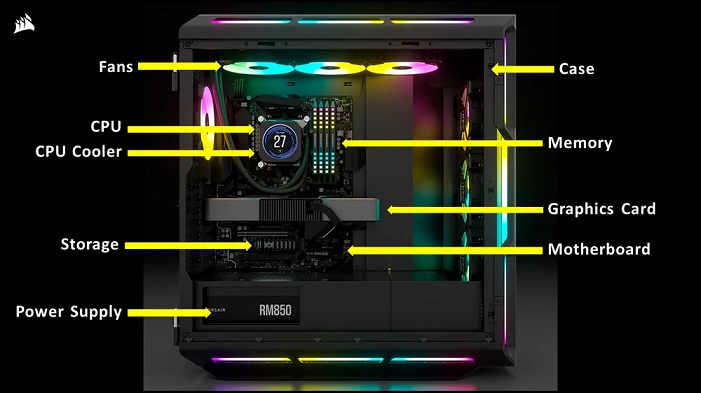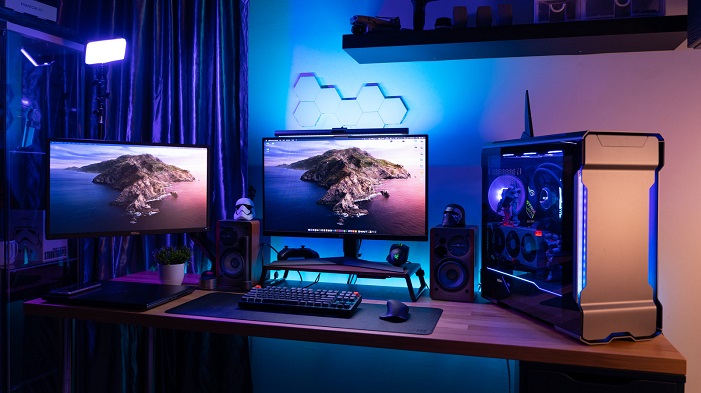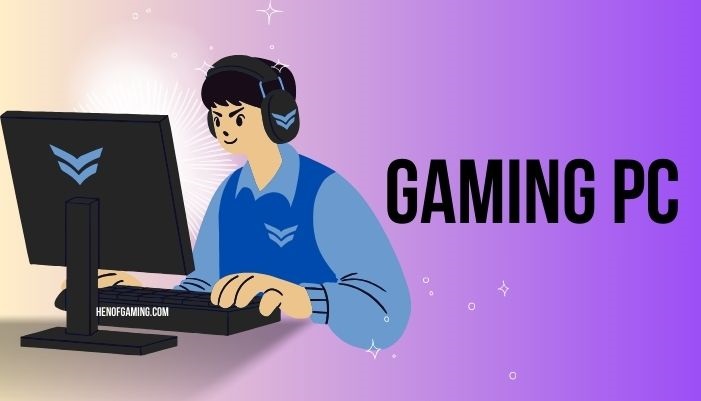A gaming PC is more than just a computer; it’s your gateway to immersive experiences, stunning graphics, and high-speed performance. Whether you’re a casual gamer or a competitive player, choosing the right gaming PC can make all the difference. This guide will help you understand what makes a great gaming PC, what components matter most, and how to choose the best one for your needs.
Why a Gaming PC is Better Than a Console
Many gamers debate whether to invest in a gaming PC or a console. While consoles offer simplicity, a gaming PC provides better customization, higher performance, and a more extensive game library. Here are some key advantages:
- Better Graphics – High-end gaming PCs support 4K resolution and ultra-high refresh rates.
- Upgradeable Components – Unlike consoles, you can upgrade parts like the graphics card, RAM, and storage.
- More Game Options – Access to a massive library of PC-exclusive games.
- Multitasking – A gaming PC can also be used for work, streaming, and content creation.
Key Components of a Gaming PC

1. Processor (CPU)
The CPU is the brain of your gaming PC. It handles game logic, physics, and AI. A fast processor ensures smooth performance.
- Best Choice: AMD Ryzen 7 or Intel Core i7
- For High Performance: AMD Ryzen 9 or Intel Core i9
2. Graphics Card (GPU)
The GPU is the most crucial component for gaming. It renders graphics and affects frame rates.
- Entry-Level: NVIDIA GTX 1660 Super, AMD Radeon RX 6600
- Mid-Range: NVIDIA RTX 3060, AMD Radeon RX 6700 XT
- High-End: NVIDIA RTX 4080, AMD Radeon RX 7900 XTX
3. RAM (Memory)
RAM helps your system run multiple processes efficiently. The more RAM, the better the performance.
- Minimum: 8GB (for casual gaming)
- Recommended: 16GB (for most games)
- Best Performance: 32GB+ (for high-end gaming and streaming)
4. Storage (SSD vs. HDD)
Storage affects game loading times and system performance.
- HDD (Hard Disk Drive): More storage for a lower cost but slower speed.
- SSD (Solid State Drive): Faster load times and better performance.
- Recommended: 1TB SSD + 2TB HDD for the best balance.
5. Power Supply Unit (PSU)
A reliable PSU ensures stable power delivery to your components.
- Minimum: 500W for budget builds
- Recommended: 750W for mid-range builds
- High-End: 1000W+ for gaming PCs with top-tier GPUs
6. Cooling System
Gaming PCs generate heat, so cooling is essential for performance and longevity.
- Air Cooling: Budget-friendly and effective for most users.
- Liquid Cooling: Better cooling for high-performance gaming rigs.
How to Choose the Best Gaming PC for Your Needs

For Casual Gamers
If you play light games like Minecraft or Fortnite, a budget-friendly gaming PC will work fine.
- Recommended Specs:
- CPU: Intel Core i5 or AMD Ryzen 5
- GPU: GTX 1660 or RX 6500 XT
- RAM: 8GB
- Storage: 512GB SSD
For Competitive Gamers
If you play FPS games like Call of Duty, Valorant, or Apex Legends, you need high refresh rates and fast response times.
- Recommended Specs:
- CPU: Intel Core i7 or AMD Ryzen 7
- GPU: RTX 3060 Ti or RX 6700 XT
- RAM: 16GB
- Storage: 1TB SSD
For High-End Gaming & Content Creation
If you stream, edit videos, or play AAA games at ultra settings, you need a powerful rig.
- Recommended Specs:
- CPU: Intel Core i9 or AMD Ryzen 9
- GPU: RTX 4080 or RX 7900 XTX
- RAM: 32GB+
- Storage: 2TB SSD + 2TB HDD
Conclusion
Choosing the best gaming PC depends on your budget and gaming needs. Whether you’re looking for an entry-level setup or a high-performance rig, understanding key components will help you make the right choice. Invest wisely and enjoy the best gaming experience!
FAQs
1. Is building a gaming PC better than buying one?
Building a gaming PC allows customization and better pricing. However, pre-built gaming PCs are more convenient.
2. How much should I spend on a gaming PC?
Budget gaming PCs start at $700, while high-end setups can cost $3000+.
3. Can I upgrade my gaming PC later?
Yes! Unlike consoles, gaming PCs are easy to upgrade over time.
4. What’s the best gaming PC brand?
Some top brands include Alienware, ASUS ROG, MSI, and Corsair.
5. Do I need a gaming monitor?
Yes! A high refresh rate gaming monitor (144Hz or higher) improves gameplay.
6. How long does a gaming PC last?
With proper maintenance and occasional upgrades, a gaming PC can last 5-7 years.
7. Do I need a special desk for a gaming PC?
While not necessary, a gaming desk with good cable management and space for accessories can improve your setup.
8. Is liquid cooling better than air cooling?
Liquid cooling is more efficient but also more expensive. Air cooling is sufficient for most gaming PCs.
9. Should I get a wired or wireless gaming mouse?
A wired mouse offers better response times, while a wireless mouse provides more freedom of movement.
10. Can I use a gaming PC for work or school?
Yes! Gaming PCs are powerful enough for video editing, programming, and other productivity tasks.



